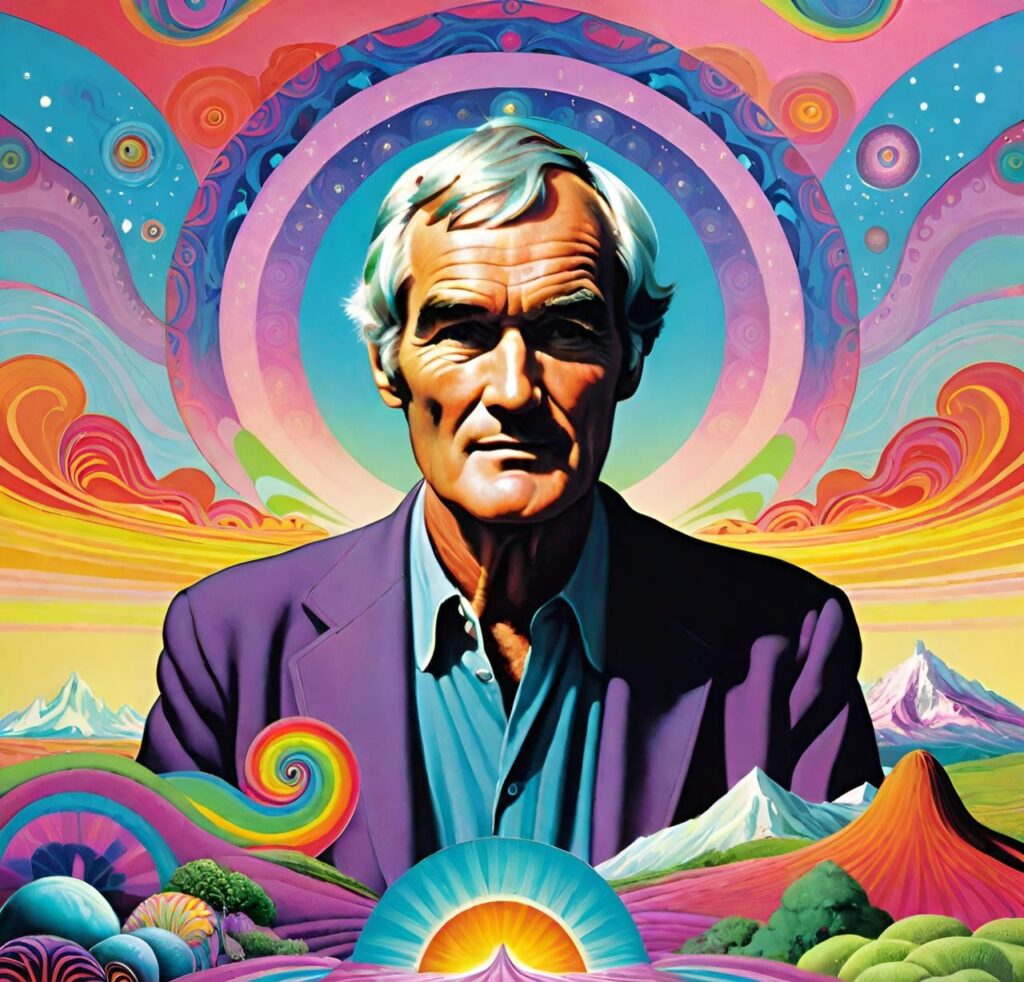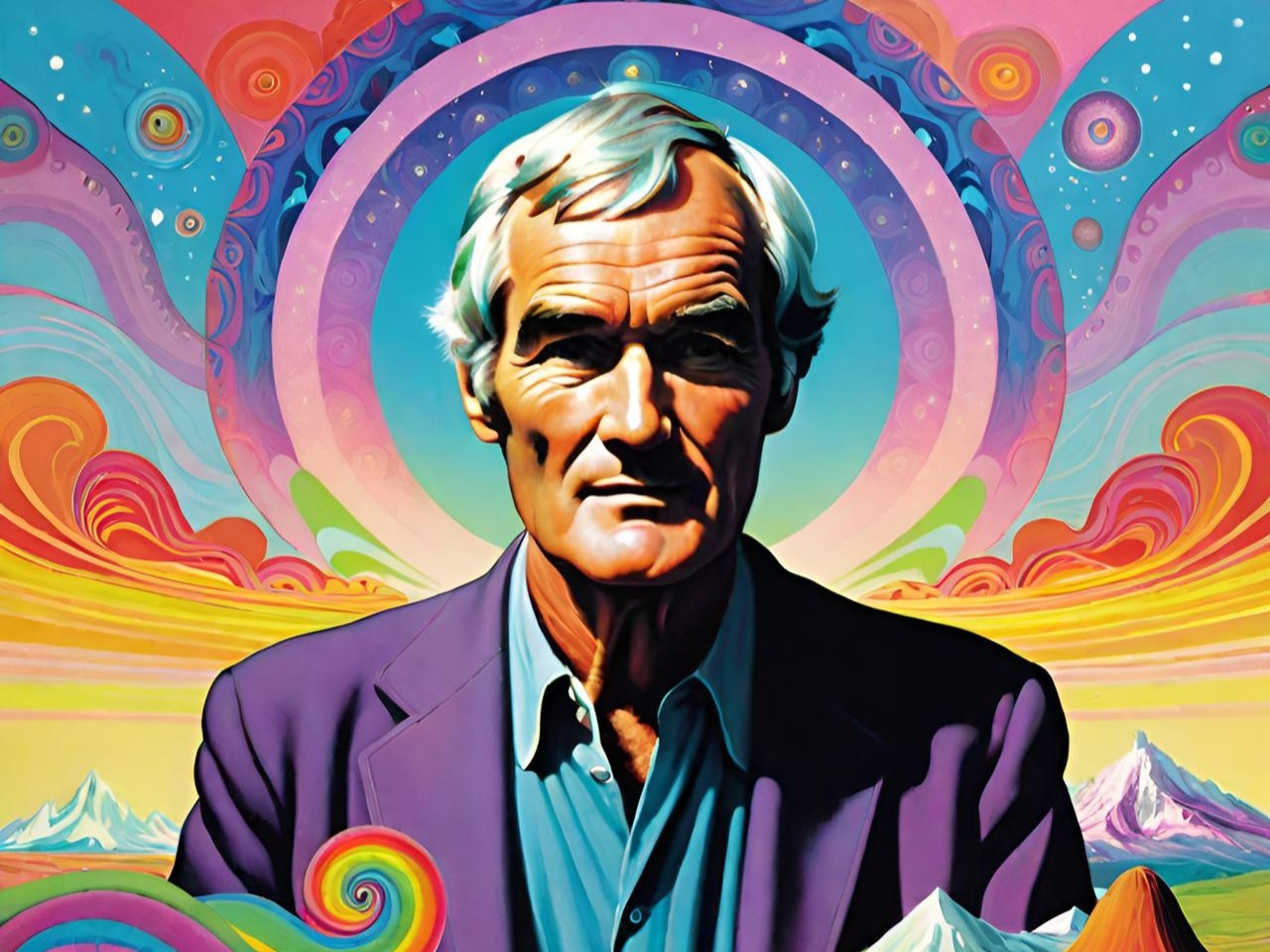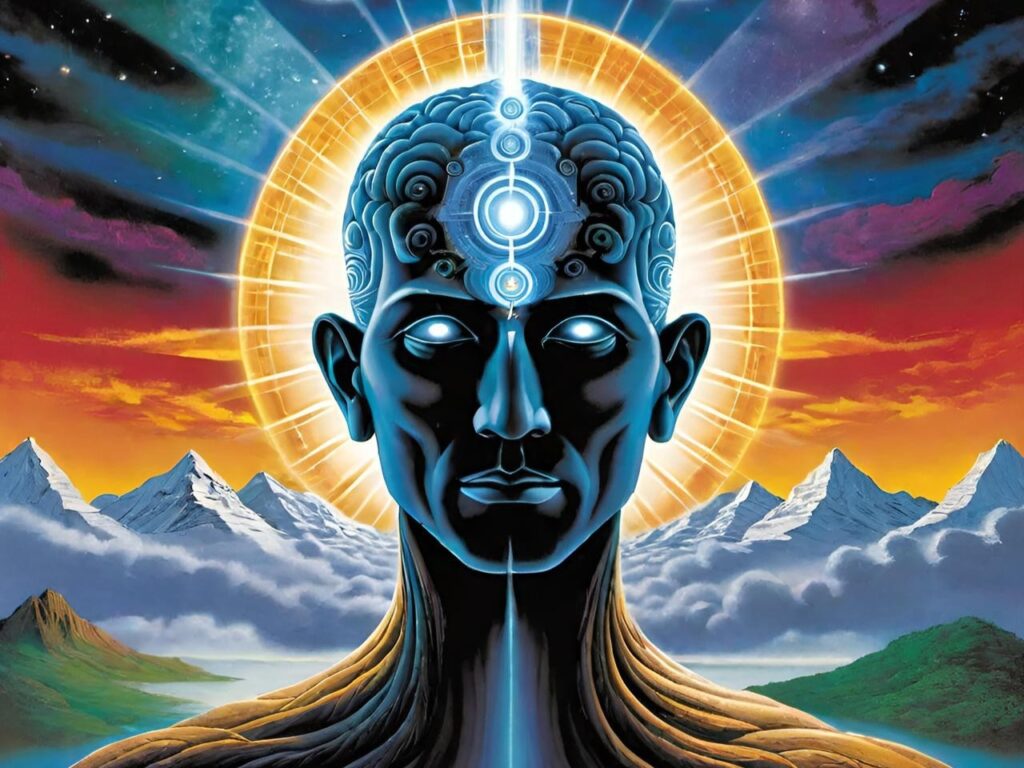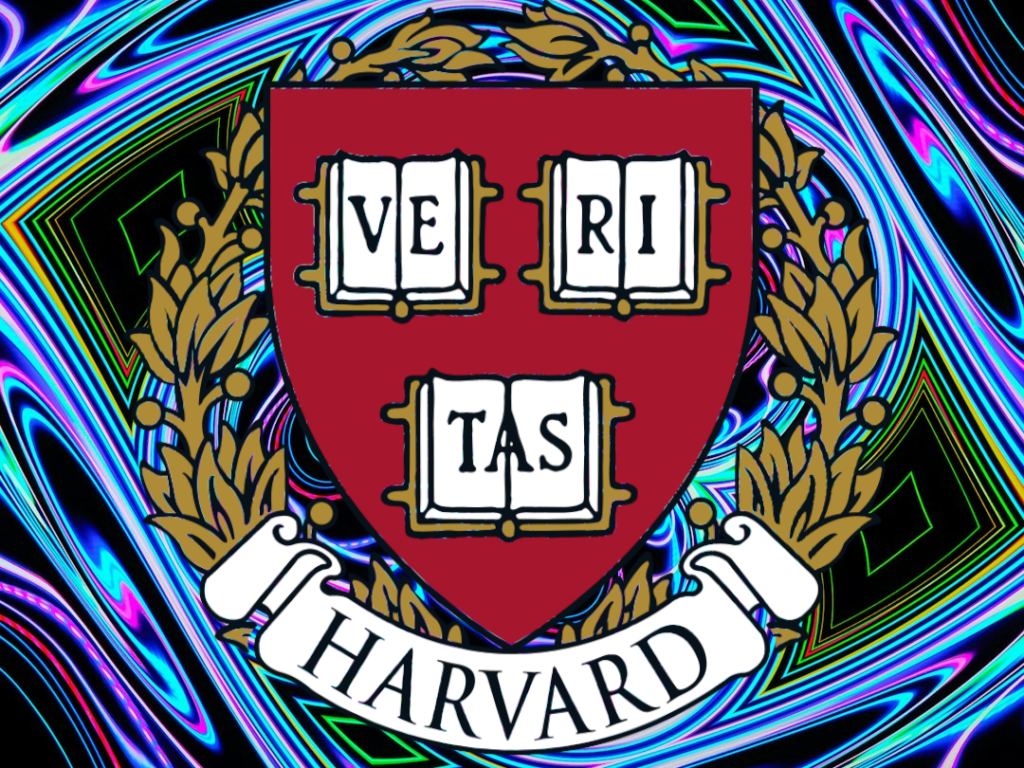Timothy Leary, the renowned psychologist, author, and advocate for psychedelic research, remains a polarizing figure decades after his heyday in the 1960s and 70s. His catchphrase, “Turn on, tune in, drop out,” encapsulated a countercultural revolution, but his contributions to modern psychology and mental health are now being re-evaluated in a new light. As the world grapples with a myriad of crises—from mental health epidemics to societal fragmentation—Leary’s philosophies and theories provide a unique lens through which we can envision healing and transformation.
Essentially, there’s a universe inside your brain. The number of connections possible inside your brain is limitless. And as people have learned to have more managerial and direct creative access to their brains, they have also developed matrices or networks of people that communicate electronically. There are direct brain/computer link-ups. You can just jack yourself in and pilot your brain around in cyberspace-electronic space.
Timothy Leary, Chaos & Cyber Culture
Embracing Psychedelic Therapy for Mental Health
One of Leary’s most enduring legacies is his pioneering work with psychedelic substances like LSD and psilocybin. Today, a growing body of research supports the efficacy of these compounds in treating mental health conditions such as depression, PTSD, and anxiety. Leary believed that these substances could unlock new dimensions of human consciousness and promote healing at a fundamental level.
In a world where mental health crises are escalating, integrating psychedelic therapy into mainstream medicine could revolutionize treatment. Leary would likely advocate for regulated, therapeutic use of psychedelics, emphasizing the importance of set and setting—creating a controlled, supportive environment for these transformative experiences. By doing so, we can help individuals confront and resolve deep-seated traumas, paving the way for a more mentally healthy society.
Fostering a Culture of Personal and Collective Growth
Leary championed the idea of individual and collective evolution. He saw personal growth as intrinsically linked to societal progress. To heal the world, Leary would encourage a culture that prioritizes self-awareness, mindfulness, and continuous learning. This involves not just educational reform, but a broader cultural shift towards valuing inner work and emotional intelligence.
Women who seek to be equal with men lack ambition.
Timothy Leary
By fostering environments that support personal development—from mindfulness practices in schools to corporate wellness programs—society can cultivate more empathetic, resilient individuals. Leary’s vision of a world where people are more in tune with themselves and each other could lead to more harmonious communities and a more cooperative global society.
Promoting Technological and Social Innovation
Leary was also an enthusiast of technology and its potential to augment human capabilities. In today’s digital age, this perspective is more relevant than ever. He would likely advocate for the responsible use of technology to enhance human connection, creativity, and problem-solving.
Innovations in virtual reality, artificial intelligence, and other emerging technologies can be harnessed to address some of the world’s most pressing issues. For instance, VR can be used for immersive therapeutic experiences, AI can help in diagnosing and treating mental health conditions, and digital platforms can foster global collaboration on social and environmental challenges. Leary’s forward-thinking approach would inspire us to use technology not just for convenience or profit, but for the betterment of humanity.
Encouraging Decentralization and Community Empowerment
The PC is the LSD of the ’90s.
Timothy Leary
Leary’s call to “drop out” was a plea for people to disengage from oppressive and conformist systems. In today’s context, this translates to advocating for decentralization and the empowerment of local communities. By reducing reliance on centralized institutions that often fail to meet diverse needs, communities can develop more localized, sustainable solutions.
This could involve supporting grassroots movements, promoting local economies, and encouraging participatory governance. By empowering people to take control of their own lives and communities, we can create a more equitable and resilient world.
Cultivating a Global Consciousness
Finally, Leary’s work was underpinned by a profound belief in the interconnectedness of all life. Healing the world, in his view, requires a shift towards a global consciousness—an awareness of our collective responsibility to each other and the planet. This involves fostering a sense of global citizenship, where people see themselves as part of a larger, interdependent system.
You’re only as young as the last time you changed your mind
Timothy Leary
Efforts to address global challenges such as climate change, inequality, and conflict must be rooted in this understanding. By promoting education, dialogue, and collaboration across cultural and national boundaries, we can build a more united and compassionate world.
Conclusion
Timothy Leary’s ideas, once dismissed as radical, are gaining renewed relevance in today’s complex world. His vision of healing—through psychedelic therapy, personal and collective growth, technological innovation, community empowerment, and global consciousness—offers a holistic blueprint for addressing the multifaceted crises we face. While his methods and messages may have been controversial, the core of his philosophy holds valuable lessons for creating a more just, compassionate, and healthy world. By revisiting and adapting Leary’s insights, we can find new ways to heal and thrive in the 21st century.
LSD is a psychedelic drug which occasionally causes psychotic behavior in people who have NOT taken it.
Timothy Leary





